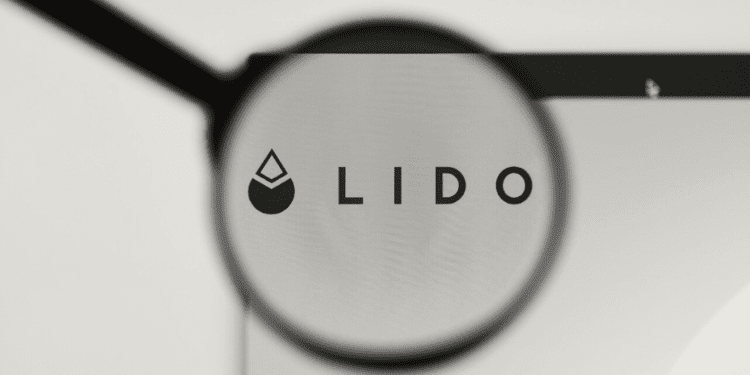- Grayscale Investments has incorporated Lido DAO (LDO) into its DeFi Fund as the second-largest holding.
- Liquid staking, which allows investors to earn rewards without locking up their tokens, has gained popularity due to its flexibility and liquidity.
- Lido has emerged as a prominent protocol, accounting for nearly 80% of the more than 10 million ETH staked via liquid staking pools.
Grayscale Investments, the world’s leading digital asset manager, recently announced a significant development: it has added Lido DAO (LDO) to its DeFi fund. This move marks a strategic advancement into the liquid staking sector and showcases Grayscale’s evolving interest in the DeFi protocol.
Lido DAO, the governance token of the Lido liquid staking protocol, has been included in Grayscale’s DeFi fund. This decision is indicative of Grayscale’s increasing faith in Lido’s DeFi protocol. To make room for LDO, the asset management firm sold off portions of its existing DeFi investments. However, it’s worth noting that no assets were entirely removed from the portfolio.
The addition of LDO to the fund sees the token now representing more than 19% of its assets, a remarkable achievement considering that the fund held zero LDO before this allocation. With this, LDO becomes the second-largest holding in Grayscale’s DeFi Fund, only surpassed by Uniswap’s UNI token, which makes up over 45% of the total portfolio.
Liquid Staking Takes the Limelight
Liquid staking has been gaining popularity in the DeFi sector due to the increased liquidity and flexibility it offers investors. It’s a process that allows owners of Proof of Stake (PoS) tokens to receive a substitute token in exchange for any crypto they lock up in a staking pool. This development comes in the wake of Ethereum’s significant upgrade and the rising popularity of Ethereum staking.
In this landscape, Lido has emerged as the favored protocol, accounting for nearly 80% of the more than 10 million ETH staked via liquid staking pools. The popularity of staking with Lido has surged to the point where Lido staked Ether (stETH) is now the seventh largest cryptocurrency by market capitalization, surpassing prominent cryptos like Cardano (ADA), Litecoin (LTC), and Solana (Sol).
Potential Expansion into Liquid Staking
With a substantial stake of LDO tokens, Grayscale is now eligible to participate in voting on Lido’s governance proposals. This could potentially increase Grayscale’s influence within the DeFi ecosystem. It also raises the question of whether Grayscale will embrace liquid staking derivatives such as stETH, now that it is a Lido stakeholder.
Grayscale stated last year that while they don’t currently stake assets in any of their investment vehicles, they’ve been exploring solutions that would allow their investors to gain exposure to staking-related rewards, while mitigating associated risks. The firm’s new exposure to LDO might provide a path for its funds to start staking their existing assets, presenting a promising investment opportunity.
Liquid staking, especially with Lido, presents an enticing investment opportunity compared to letting assets sit idle in a wallet. Last month, the Lido DAO voted to increase staking rewards for the largest participants in its pool, offering a larger share of the ETH received from staking to those that can drive 2,500 ETH to Lido over 12-24 months.
Grayscale’s recent move is an example of institutional acceptance that could foster wider adoption of liquid staking in the future. Given its many advantages over traditional staking mechanisms, such as improved liquidity and flexibility.














